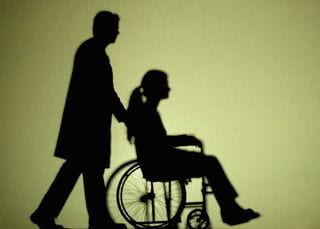 The high cost of healthcare is a real concern for people with chronic or fatal diseases who have healthy spouses. How can they protect their spouses from being impoverished by the cost of their care?
The high cost of healthcare is a real concern for people with chronic or fatal diseases who have healthy spouses. How can they protect their spouses from being impoverished by the cost of their care?
The high cost of health care for one spouse could leave the surviving spouse facing a mountain of medical bills. Would it make sense to divorce, so that your spouse isn’t burdened with debt? There is no one answer, and many concerns, like fraud.
nj.com’s article asks “Will getting a divorce protect my spouse from my medical debt when I’m dead?” According to the article, the factors to consider include details on the couple’s assets, income and debts, the existence of a will and/or other estate planning documents and the amount and nature of the medical expenses.
There are a few medical expenses of a deceased spouse, for which the other spouse may be liable. The nature of the medical debt is relevant, in addition to the amount, in the Garden State.
In addition, whether the would-be deceased spouse has a will and the extent of his or her estate is also an important factor. If the estate assets are insufficient to pay all debts of the estate in full, it is possible that medical debt may not be paid at all. For example, New Jersey’s applicable statute—N.J.S. 3B:22-2—states the debts in order of priority to be repaid when the estate assets are not enough to pay all claims in full:
- Reasonable funeral expenses;
- Costs and expenses of administration;
- Debts for the reasonable value of services rendered to the decedent by the Office of the Public Guardian for Elderly Adults;
- Debts and taxes with preference under federal law or the laws of New Jersey;
- Reasonable medical and hospital expenses of the last illness of the decedent, including compensation of persons attending him;
- Judgments entered against the decedent according to the priorities of their entries respectively; and then,
- All other claims.
An estate planning attorney who practices elder law and Medicaid planning will be able to help you navigate the cost of care and applying for Medicaid. Getting a divorce solely for the purpose of avoiding paying debt may be considered fraud, so you’ll want to be sure that you are not doing something legally and ethically wrong. Speak with an experienced estate planning attorney, who can guide you through this difficult area.
Reference: nj.com (May 16, 2019) “Will getting a divorce protect my spouse from my medical debt when I’m dead?”
